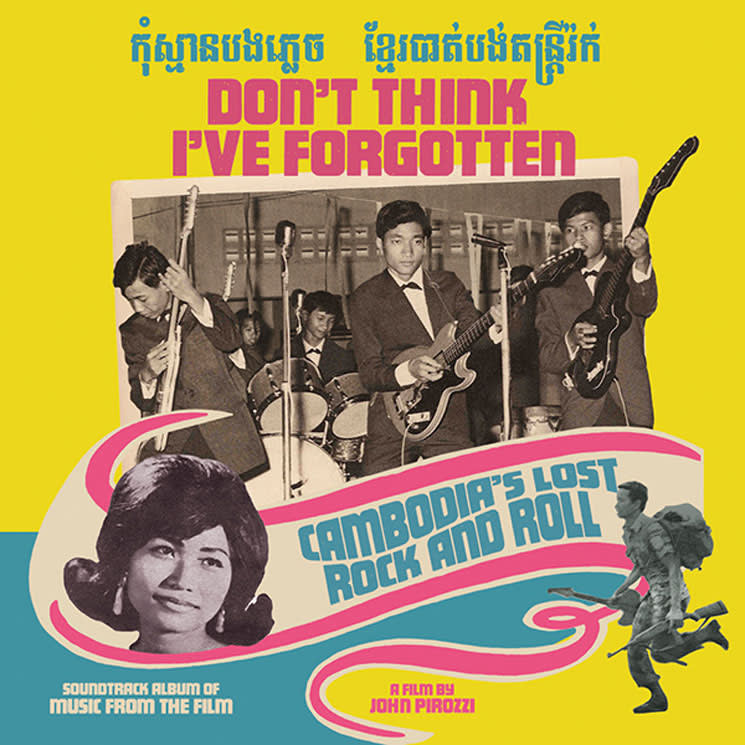Over 40 years ago, Cambodia was home to a rare and vital hotbed of music. Afternoon television programs would find the country's passive leader Norodom Sihanouk, a patron of the arts, playing piano alongside the most revered stars of the day (he also played clarinet, the saxophone and the accordion). They even had their own versions of Elvis and Dolly Parton: the dapper crooner Sinn Sisamouth and the shrill-voiced national sweetheart Ros Serey Sothea. But when the Khmer Rouge marched on Phnom Penh in the spring of 1975, one of their first mandates was to stamp out the national culture, and with that came the targeting and killing of nearly every Cambodian musician and artist. Almost overnight, an entire generation of music and culture was all but erased.
The soundtrack that accompanies Don't Think I've Forgotten, the moving documentary by filmmaker John Pirozzi, takes us back to that vibrant pre-Khmer Rouge era of music and follows the heavy impact rock and roll had on it. Stylistically, the music is representative of the country's political situation at the time — a melting pot of traditional eastern and Khmer styles, along with Western influences from the neighbouring French and, later, American military presence. There's '50s doo-wop ("Under the Sound of Rain"), '60s pop ("Don't Be Angry"), surf and psychedelia ("Dying Under a Woman's Sword," "B.C.K.") and the harder '70s guitar rock and soul that was starting to appear when the Khmer Rouge stormed in ("Crazy Loving You"). There's even a half-Khmer, half-English cover of Carole King's "You've Got A Friend," all of which is sung through heavy reverb that lends the music a certain, yet eerily fitting, hauntedness.
While many of these songs evoke tragic memories of a fatally fragile musical scene, they also wind back to a sunnier, more flowery time in Cambodian history. Few of these recordings have ever been heard outside of the country, and many more were banned and destroyed during the regime's bloody reign. The mere existence of this music is not only a testament to its staying power, but an homage to those who paid for it with their lives.
(Dust-to-Digital)The soundtrack that accompanies Don't Think I've Forgotten, the moving documentary by filmmaker John Pirozzi, takes us back to that vibrant pre-Khmer Rouge era of music and follows the heavy impact rock and roll had on it. Stylistically, the music is representative of the country's political situation at the time — a melting pot of traditional eastern and Khmer styles, along with Western influences from the neighbouring French and, later, American military presence. There's '50s doo-wop ("Under the Sound of Rain"), '60s pop ("Don't Be Angry"), surf and psychedelia ("Dying Under a Woman's Sword," "B.C.K.") and the harder '70s guitar rock and soul that was starting to appear when the Khmer Rouge stormed in ("Crazy Loving You"). There's even a half-Khmer, half-English cover of Carole King's "You've Got A Friend," all of which is sung through heavy reverb that lends the music a certain, yet eerily fitting, hauntedness.
While many of these songs evoke tragic memories of a fatally fragile musical scene, they also wind back to a sunnier, more flowery time in Cambodian history. Few of these recordings have ever been heard outside of the country, and many more were banned and destroyed during the regime's bloody reign. The mere existence of this music is not only a testament to its staying power, but an homage to those who paid for it with their lives.
